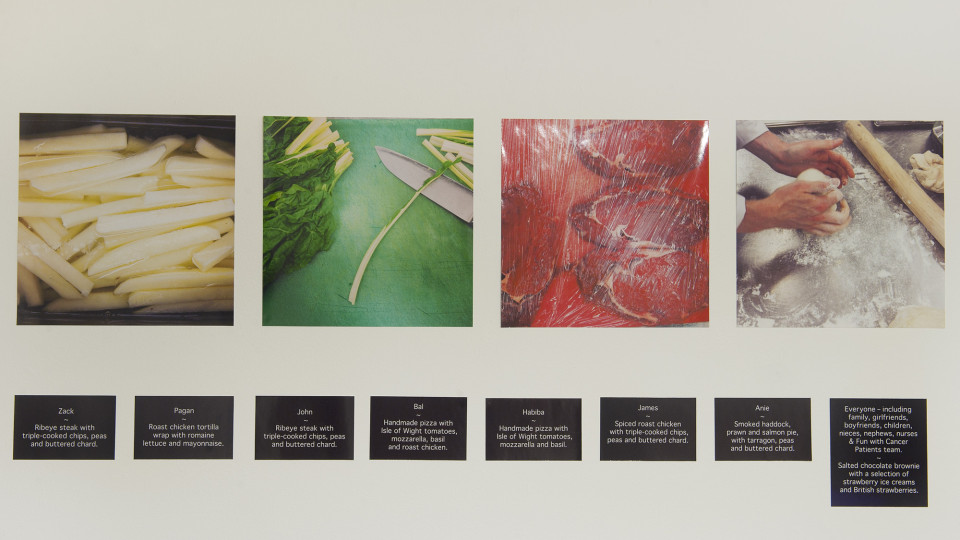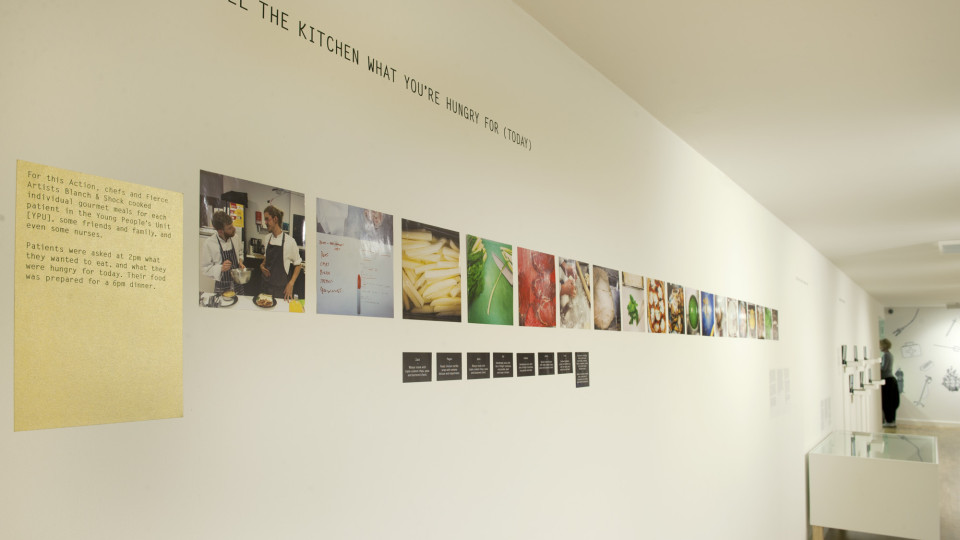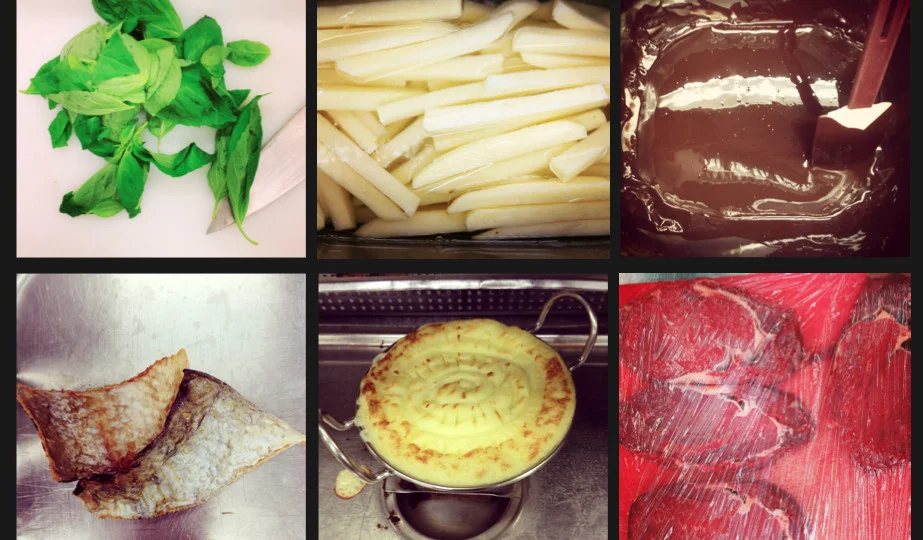Tell The Kitchen What You’re Hungry For (Today)
For this Action, chefs and Fierce Artists Blanch & Shock cooked individual gourmet meals for each patient in the Young People’s Unit (YPU), some friends and family, and even some nurses. Patients were asked at 2pm what they wanted to eat, and what they were hungry for today, and food was prepared for 6pm dinner.
THE MENU:
Pagan: Roast chicken tortilla wrap with romaine lettuce and mayonnaise
James: Spiced roast chicken with triple-cooked chips, peas and buttered chard.
Habiba: Handmade pizza with Isle of Wight tomatoes, mozzarella and basil
Bal: Handmade pizza with Isle of Wight tomatoes, mozzarella, basil and roast chicken.
Anie: Smoked haddock, prawn and salmon pie, with tarragon, peas and buttered chard
Zack: Ribeye steak with triple-cooked chips, peas and buttered chard John: Ribeye steak with triple-cooked chips, peas and buttered chard.
Everyone [including family, girlfriends, boyfriends, children, nieces, nephews, nurses, and Fun with Cancer Patients team]: Salted chocolate brownie with a selection of strawberry ice creams and British strawberries.
Reflections 1
There are multiple ways that cancer affects appetite and diet. First you have the disease itself – for example, if you have a cancer in the stomach, you may not eat very well. Second, you have got something that is growing in your body. Every part of your body needs energy to keep growing and cancer is no different. Because it is using a lot of calories, people may be eating normally but losing weight. Chemotherapy is a toxin. This can make you feel quite sick with diarrhoea and pain in the stomach. With some of the metal-based chemotherapy drugs you can have a very metallic taste in your mouth.
With radiotherapy, we are burning you. This can cause pain, discomfort, as well as mucositis – a thick, heavy mucous build-up in your mouth, which is the body trying to protect itself. You will have a higher risk of infections because your immune system is low, especially in the mouth and throat.
And on top of all of this, there is the emotional side. People can get very tired and after diagnosis they have a lot of adrenaline floating around in their system. People often forget the impact of this emotional burden on appetite.
– Sarah, Dietetics
Reflections 2
Hospital food has a horrible reputation and you may hear stories about bad food. You may never hear people say when something’s actually ok. With the new hospital, what we do is ‘Cook & Chill’, which means that food is cooked externally, put into packages, and then reheated. Nutritionally this fits most patients needs. There is minimal nutritional loss. What we have tried to do is find the food that is best suited for this process.
Obviously, you can not suit everybody. And it is very traditional food and serving times, as the majority of our patients are over the age of 55. We are trying to understand what is missing between ordinary patients and the young people, such as recognising that they don’t (or don’t want to) eat breakfast at 7:30am. It’s not normal for them, and the point of the Young People’s Unit (YPU) is to keep things as normal as possible.
– Sarah, Dietetics
Reflections 3
I discuss potential changes in weight with patients as they start out on their treatment regimen. I tell all patients to expect their chemotherapy to affect their experience with food, how it will taste, how they might not like the same foods as they did before chemo, and how feeling sick may affect their desire for food. I don’t focus on this as a ‘bad’ thing, and I emphasise the interventions we can do to help with nutrition.
Any patient who will be taking steroid medicine as part of their regimen, I explain the potential weight gain. For most of our teenage patients this seems to be more of an issue, so I make a point of emphasising this is a temporary effect.
I don’t recommend any special dietary regimen’ as there is no proof of benefit. My simple message to patients is ‘eat what you want when you want’.
I would like us to be more flexible and accommodating for our teenagers regarding diet. I am aware of the huge success one unit experienced when they were able to provide a dedicated chef, who would cook for the young people in hospital as and when they wanted. If only we could bring Heston Blumenthal into our world…
– Dave


